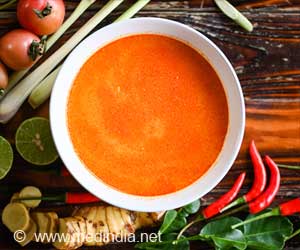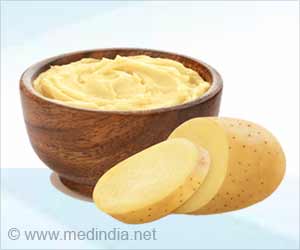Do you get coughs and colds a lot during the monsoon? Even after inhaling steam and moving to warm water, you still can’t get your head around it, can you? Stop worrying.
The only solution is a well-balanced diet. To enhance immunity, eat seasonal fruits and vegetables and warm foods (1). Keep hydrated, avoid fatty foods, and promote hygiene. With the assistance of specialists, we have developed a healthy monsoon diet to ensure health and vitality during the season.
Monsoon Diet: How to Eat Healthy During the Monsoon Season?
Chef Bhupender Singh, says, “The monsoon brings both solace and concern. It offers relief from the summer heat with refreshing rain but also brings health worries like colds, flu, malaria, dengue, and stomach infections. Navigating this season requires a conscious focus on daily routines, healthy eating, physical activity, and a positive mindset for optimal health. Incorporating essentials into our diet is vital during the monsoon.”
“As raindrops cascade delicately upon our windowsills and nature’s canvas dresses in lush, vibrant shades, the enchanting monsoon season descends upon us. Alongside its cozy ambiance, this period ushers in a distinct set of dietary considerations essential for safeguarding our well-being. From judicious hydration to mindful food choices, here are invaluable guidelines to maintain a balanced and health-conscious diet during this climatic transition,” says Chef Gaurav Raghuvanshi, Culinary Head, Anardana.
The Art of Monsoon Dining
The concept of appreciating the wealth of seasonal produce is central to your nutritional strategy. Freshly cooked, locally available vegetables and fruits, such as the delectable Jamun and Plum, constitute the foundation of the monsoon diet. However, use caution and avoid raw foods during this season, since the increased danger of bacterial development increases the likelihood of contamination.
“Culinary safety takes precedence, urging thorough cooking to eliminate any lurking pathogens. Eschew partially cooked or raw foods, with special attention to red meats and seafood. As digestion tends to slow down during monsoons, prioritize easily digestible fare like steamed or grilled dishes, accompanied by nourishing soups and stews to keep your internal fires burning optimally,” adds Raghuvanshi.
Probiotics and Vitamin C for a Robust Immune System
A strong immune system is frequently associated with a strong stomach. Increase your intake of probiotic-rich foods like yogurt and buttermilk to strengthen your body’s defense mechanisms and overall well-being (2).
Advertisement
Increasing your consumption of Vitamin C is a powerful method for boosting your immune system (3). To strengthen your body’s natural defenses, embrace the acidic goodness of citrus fruits like oranges, lemons, and the indigenous amla.
References:
- Calder PC. Foods to deliver immune-supporting nutrients. Curr Opin Food Sci. 2022 Feb;43:136-145. doi: 10.1016/j.cofs.2021.12.006. Epub 2021 Dec 18. PMID: 34976746; PMCID: PMC8702655.
- Maldonado Galdeano C, Cazorla SI, Lemme Dumit JM, Vélez E, Perdigón G. Beneficial Effects of Probiotic Consumption on the Immune System. Ann Nutr Metab. 2019;74(2):115-124. doi: 10.1159/000496426. Epub 2019 Jan 23. PMID: 30673668.
- Carr AC, Maggini S. Vitamin C and Immune Function. Nutrients. 2017 Nov 3;9(11):1211. doi: 10.3390/nu9111211. PMID: 29099763; PMCID: PMC5707683.
Source: Medindia



